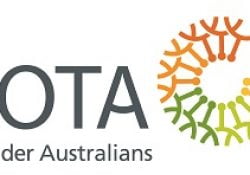COTA Australia welcomes the opportunity to provide comment and input regarding the inquiry into the credit and financial services targeted at Australians at risk of financial hardship. COTA Australia is the national consumer peak body for older Australians. Its members are the State and Territory COTAs (Councils on the Ageing) in each of the eight States and Territories of Australia. The State and Territory COTAs have more than 1,000 seniors’ organisation members, which jointly represent over 500,000 older Australians, as well as about 20,000 individual members. Our focus is on national policy issues from the perspective of older people as citizens and consumers and we seek to promote, improve and protect the circumstances and wellbeing of older people in Australia. Information about, and the views of, our constituents and members are gathered through a wide variety of consultative and engagement mechanisms and processes.
Older Australians can, in particular, be vulnerable to poor and misleading credit and financial services as older people can often be on low incomes and experience financial stress. Older people aged 65 and over represented approximately 15.7% of the Australian population in 20161. However, it is estimated that older people aged 65 and over represented 59 per cent of all single person households on lower incomes, and approximately 68 per cent of all couples only households on lower incomes in 2015-16.
Moreover, cost of living pressures are particularly difficult for older people who are renting their home. It is estimated that approximately 44 per cent of low income rental households in Australia spent more than 30 percent of their gross income on housing costs in 2015-16, and a significant proportion of these homes are rented by older people, particularly older women.
This suggests that older people are considerably more likely to be on lower incomes than the broader adult population and may often not always be able to afford essentials such as electricity, gas, food, the rent or mortgage, medical and dental expenses. Moreover, when older people economize too far on these essentials to try and make ends meet that can result in increased health issues, social isolation and sometimes homelessness.
In an evaluation by RMIT University of a Dignity and Debt initiative (Financial Difficulty and Getting Older) it is suggested that older people represent a growing demographic within Australia whose autonomy around financial matters, new technology and time of life makes them disproportionately likely to experience financial vulnerability4. Those changes identified that are increasingly impacting older people include:
- increased use of credit cards and loans by older people, resulting in increased levels of personal
debt; - reduced levels of home ownership and increasing housing instability, resulting in financial stress;
- transfer of existing high levels of debt, such as mortgages, credit card debt, into retirement;
- the requirement of information technology literacy for many financial services; and
- the transition of the aged care landscape into the consumer directed-marketised platforms based on individualised funding models, which while offering benefits to many also carries risks
The findings outlined in the Consumer Action Law Centre submission to this inquiry indicate significant issues in the credit and financial services sector leading to very poor outcomes for consumers. This is also supported by the Australian Securities and Investments Commission’s research regarding debt management firms in the sector which found that:
- fees and costs are opaque, making it difficult to assess the cost of the services relative to the purported value;
- fees are often high and heavily front loaded which likely increases consumer commitment and exacerbates sunk cost bias;
- some sales techniques may create a high-pressure sales environment; and little information was given about important risks;
- some firms had a poor understanding of the relevant law and the consequences of particular strategies which may lead to unsuitable services for some consumers; and
- firms rarely referred consumers in financial hardship to free alternative sources of help.
In COTA Australia’s view, many older people are particularly vulnerable to poor and misleading credit and financial services, in terms of ending up being engaged with these services with the impact being poor outcomes for them.
Therefore, COTA Australia strongly urges that credit and financial services in this sector have an adequate level of regulation and oversight that enable the delivery of outcomes that are in the best interest of the client.
COTA Australia supports the submission (dated 9 November 2018) made by the Consumer Action Law Centre (CALC) to the inquiry into the credit and financial services targeted at Australians at risk of financial hardship. We support the recommendations made by the CALC in its submission, including those to significantly strengthening regulation within the sector and ensure a comprehensive cost cap for all forms of consumer credit.
Thank you for the opportunity to provide comment and input into this inquiry. Should you have further enquiries regarding this matter please do contact Ian Laidlaw, Policy Manager, COTA Australia on (02) 6154 9740 or ilaidlaw@cota.org.au.


